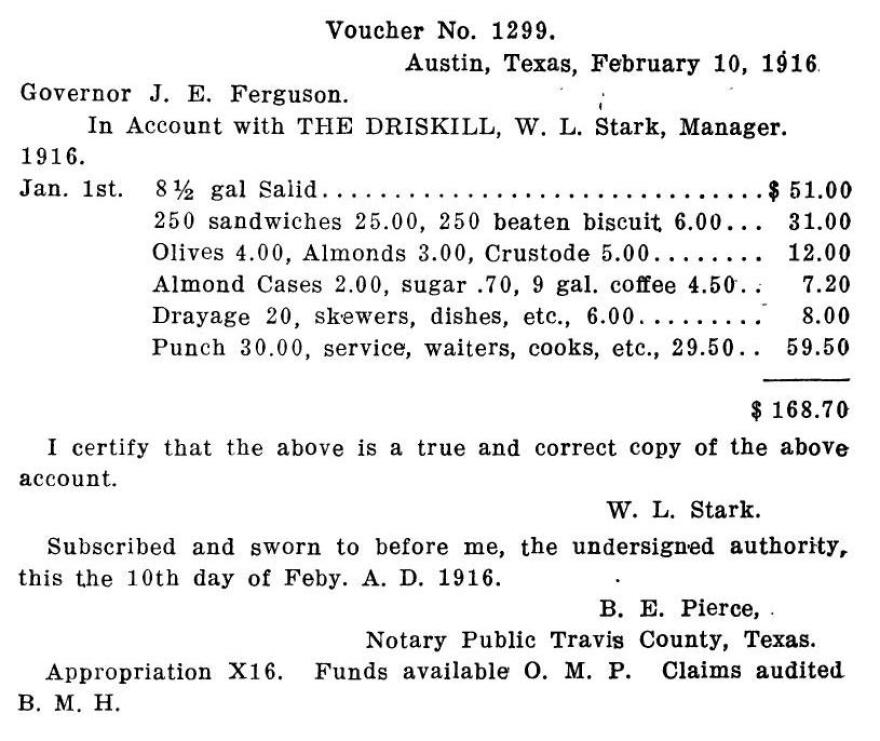Today’s Wayback Wednesday marks the 100th anniversary of the beginning of the end of James “Pa” Ferguson’s tenure as governor of Texas. The unlikely harbinger of his premature departure from the Governor’s Mansion? Chicken salad.
One hundred years ago today, in Ferguson’s first month as governor, the legislature passed a bill to pay for the groceries of his predecessor, O.B. Colquitt, with services and sundries on Colquitt’s tab including butter, eggs, feed for horses, car repairs, stationary, punch and chicken salad, among others.
Despite a lawsuit challenging that decision, Ferguson decided to follow Colquitt’s example and ended up using state money to fund lavish personal expenses, buying a ukulele, car tires, Victrola records and groceries. He even contracted the Driskill Hotel to cater a New Year’s Day feast that, appropriately, featured a mayo-based salad and punch.

The lawsuit against the appropriation was filed in a Travis County district court on Feb. 12, 1915. The case against the comptroller alleged Colquitt’s expenses didn’t fall within the state’s stipend for a governor’s living expenses — which, back then, consisted of an annual allowance of $2,000 to be used only for utilities, gasoline and ice for the Governor's Mansion.
Clearly, Ferguson had no intention of halting his spending habits throughout his first term, which, understandably, didn't sit well with many a legislator.
Still, he won re-election in 1916 — governors had two-year terms until 1972. In his second term, Ferguson fiercely targeted the University of Texas, withholding the funding to the university after the legislature appointed a regent to the system without his say-so. His veto of the funding later led to an indictment. (Below, you can listen to Jennifer Stayton's conversation with Briscoe Center Executive Director Don Carleton about the whole dust-up and subsequent indictment).
Ultimately, the Chicken Salad Case, Ferguson's heavy-handed approach to controlling the University of Texas and his general lack of concern with constitutionality led to his impeachment. In March of 1917, a House committee clocked him with violations and recommended his impeachment — accusing him of misappropriating funds for the Governor's Mansion, engaging in shady lending practices with the Temple State Bank and receiving a $156,000 anonymous loan, which he never ended up divulging the source of — citing a total of 10 charges.
During a cross-examination with then-Attorney General M.M. Crane, Ferguson said, "I am simply telling you that the law don't amount to anything."
Ferguson was indicted in Travis County in July later that year and resigned before his impeachment in August. In September of 1917, the state's high court found him guilty of misappropriating state money. He was never allowed to run for public office in Texas again. He later unsuccessfully ran for U.S. Senate and for president.
However, it wasn't all over for Pa Ferguson. In 1924, his wife Miriam "Ma" Ferguson was elected to the office of governor, making Pa the first First Gentleman of Texas. She was later re-elected in 1932.

